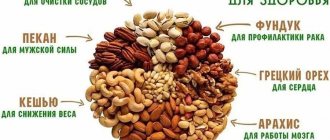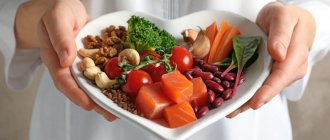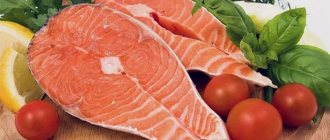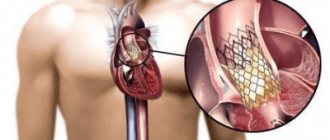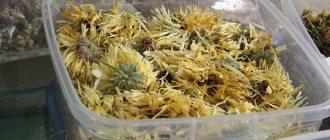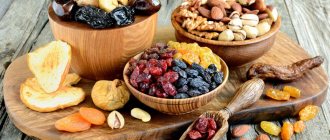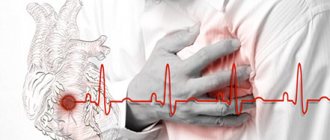Home — For the public
- Map of medical organizations
- Vaccination
- Clinical examination
- Fluorography
- Addresses and opening hours of clinics
- Emergency rooms
- Oncology
- Where to take an HIV test
- Healthy child's office
- Services
- Prevention of CVD
- Disease Prevention
- World Patient Safety Day
- Newspaper "Medical News"
- specialist
- School of Health
— Disease prevention
- HIV infection
- All about vaccination
- All about proper nutrition
- Hepatitis
- Flu
- Dementia
- Schoolchildren's health
- STD
- Tick-borne encephalitis
- Whooping cough
- Measles
- Legionellosis
- Meningococcal infection
- Oncology
- Acute intestinal infection
- Pediculosis
- First aid
- Pneumococcal infection
- Pneumonia
- Prevention of rabies
- Dependency Prevention
- Rotavirus infection
- Diabetes
- Cardiovascular diseases
- Injuries
- Tuberculosis
- Tularemia
- Physical activity
- Obstructive pulmonary disease
- Exotic infections
- Ecology
- Why is swimming in ponds dangerous?
— Cardiovascular diseases — Nutrition for cardiovascular diseases
Can a certain diet improve the condition of a person with heart disease or is this another myth? To answer the question, it is enough to recall WHO data that lifestyle has up to 50% of the impact on health. And diet is as important a part of lifestyle as physical activity and the presence or absence of stress. A diet for cardiovascular diseases (or CVD) helps maintain normal body weight, protects against the development of diabetes mellitus, and increased levels of “bad” cholesterol. Every person can adjust their diet and monitor it.
1-4: Fruits
Let's start our list with fruits. When choosing fruits, it is important to be guided by the principle of seasonality, since fruits grown out of season often accumulate harmful substances used for growth, which neutralize the benefits of their consumption. Among the many fruits for the cardiovascular system, the following have the greatest benefits:
Bananas
Bananas are a source of potassium, this is the primary reason why they are indispensable for the functioning of the heart and the condition of blood vessels. Potassium helps reduce blood pressure and the likelihood of heart attacks and strokes.
In addition, potassium normalizes the functioning of the nervous system and protects against the accumulation of cholesterol plaques.
4 facts about the effect of bananas on the heart, see here.
Magnesium contained in a significant amount promotes the absorption of potassium. Also, due to the consumption of bananas, the content of hemoglobin in the blood and the circulatory process are normalized (evidence).
See also:
- Top 10 foods containing potassium and magnesium.
Pomegranate
Pomegranate is one of the most valuable fruits for strengthening and supporting the condition of the heart and blood vessels (proof). Its consumption prevents the development of atherosclerosis, maintaining blood flow levels and oxygen saturation of the heart.
The substances contained in pomegranate protect against the development of angina pectoris and help maintain the strength of the walls of blood vessels. Pomegranate juice is one of the most beneficial juices for the heart and promotes blood formation and circulation.
6 beneficial properties of pomegranate for the cardiovascular system here.
Pomegranate is not contraindicated for diabetics. In addition to its effect on the cardiovascular system, pomegranate has a general strengthening effect; it has a beneficial effect on the functioning of the brain, central nervous system, and genitourinary system.
Lemon
By consuming lemons, the heart muscle is strengthened and blood vessels are cleansed.
Lemon is rich:
- fiber;
- carotenes;
- pectins;
- ethers;
- potassium;
- vitamin C.
4 healing properties of lemons for the heart here.
The substances contained in lemon prevent the development of angina pectoris, tachycardia, coronary artery disease, hypertension, and prevent the occurrence of heart attacks, heart attacks and strokes (evidence). Both lemon juice and zest are beneficial.
Persimmon
Persimmon is rich in potassium, calcium, zinc and iodine.
It contains:
- carotenes;
- vitamin C;
- vitamins of groups A and B.
See more about the effect of persimmon on the heart.
By including persimmon in the diet during its ripening season, the walls of blood vessels are strengthened, blood pressure is normalized, and the symptoms of hypertension are eliminated (evidence). Persimmon dilates blood vessels, helps with symptoms of anemia, and strengthens the activity of the heart muscle.
Flaxseed oil
This product is a recognized leader in the content of polyunsaturated Omega-3 fatty acids, which allows it to be used for the prevention of heart and vascular diseases. Among its positive properties is the ability to reduce the level of “bad” cholesterol in the blood and prevent increased blood clots.
Due to the high calorie content of flaxseed oil, it is advisable to consume no more than 2 tbsp. l. in a day. The oil is used for dressing salads, flax seed is added to porridges and main courses.
Find out more: The benefits and harms of flaxseed oil, how to take it?
5-10: Vegetables
Fruits, like vegetables, have scientifically proven cardioprotective properties. When choosing vegetables, it is also important to pay attention to seasonality. Experts do not recommend eating yellow and orange bell peppers in winter. Some of the most heart-healthy vegetables include:
Tomatoes
Tomatoes prevent blood clots and prevent the development of atherosclerosis , anemia, and heart attacks (evidence).
In addition, by consuming tomatoes, the risk of developing coronary disease is reduced, and the development of tachycardia and hypertension is prevented by normalizing blood pressure.
Tomatoes protect against heart attacks and improve the functioning of the nervous system, normalizing the functioning of the heart and regulating its rhythm.
Garlic
Garlic contains unique substances, including allicin, inulin, lysine, ajoene and others.
Consumption of garlic reduces blood pressure, relaxes blood vessels and improves blood flow. Garlic also helps lower blood cholesterol levels (evidence).
Onion
Onions have a vasodilating effect. The elements contained in the oil cleanse blood vessels and improve cholesterol metabolism .
Onions prevent the development of atherosclerosis and help strengthen the walls of blood vessels (evidence).
Also, due to the consumption of onions, blood thins and hemoglobin levels normalize.
Pumpkin
Due to the content of potassium, vitamins A, and carotenes, the following processes occur when consuming pumpkin:
- the process of hematopoiesis improves;
- blood pressure normalizes;
- the work of the heart muscle is strengthened and normalized.
Pumpkin has a beneficial effect on the heart, helps lower blood pressure and lowers unwanted cholesterol, also cleansing the walls of blood vessels (evidence). By including pumpkin in the diet, symptoms of arrhythmia, tachycardia and angina are eliminated. Pumpkin should be used for prevention and in cases of atherosclerosis and hypertension. Pumpkin fruits also improve blood circulation.
Pepper
Red hot peppers are most beneficial for the heart, thanks to capsaicin in its composition, which has a very powerful counteraction to the development of coronary artery disease and hypertension (evidence).
In addition, pepper prevents the development of arrhythmia, normalizing heart rhythm, and has a very high content of antioxidants necessary for modern man . Black pepper is also useful, and in season - sweet bell peppers.
Experts recommend refraining from eating yellow and orange bell peppers in winter, since their cultivation uses pesticides that are dangerous to the human body.
Horseradish
Horseradish is rich in panthenolic acid, riboflavin, carotene, phosphorus, magnesium, zinc, and copper. Both the root and leaves of horseradish are good for the heart.
Consumption of horseradish reduces the content of dangerous cholesterol, normalizes blood pressure, saturates the heart with the potassium it needs, and reduces the risk of heart attacks, strokes and other diseases.
Broccoli
Broccoli is considered one of the most nutritious and healthy of all types of the cabbage family due to its exceptional composition:
- Potassium,
- Magnesium,
- Phosphorus,
- Manganese,
- Vitamins B, C, D,
- Plant fiber.
These substances allow broccoli to actively resist the development of diabetes and cardiovascular diseases.
Find out more: Benefits of broccoli and harm of broccoli
11-13: Berries
Berries are a natural storehouse of concentrated vitamins. Among the berries that have the most beneficial effect on the heart are the following.
Cranberry
Due to the content of anthocyanins in cranberries, toxins are removed, cholesterol levels are normalized, and heart attacks and strokes are prevented.
See 3 facts about the effect of cranberries on the heart and blood vessels here.
Ursulic acid, by dilating venous vessels, helps improve blood flow, and phenols help strengthen the walls of blood vessels.
Kalina
Viburnum is an indispensable product for the treatment and prevention of hypertension .
Due to its consumption, blood pressure levels are normalized, blood vessels are cleansed, and cholesterol levels are normalized. Viburnum strengthens the heart muscle. This berry also helps eliminate swelling.
Grape
The most beneficial property of grapes for the heart is that it prevents blood clots. In addition, due to its consumption, vascular permeability is maintained and heart activity is normalized.
Grapes help increase hemoglobin levels and normalize blood pressure.
Pomegranate
This fruit is considered the best remedy for the prevention of heart disease. It exhibits its exceptional properties when consumed in the form of freshly squeezed juice or fresh. Natural enzymes and biostimulants of pomegranate stimulate blood circulation in blood vessels, which helps reduce cholesterol levels, thin the blood, and effectively resist atherosclerosis and the development of cardiovascular pathologies.
Antioxidants found in pomegranate juice, according to research by American scientists, can resist prostate cancer and increase potency by stimulating blood circulation in the pelvic organs. To achieve a pronounced therapeutic effect, you need to drink 200 ml (a glass) of freshly squeezed pomegranate juice per day.
Find out more: Useful properties and recipes for using pomegranate
14-17: Drinks
In addition to drinking enough water, there are other drinks that are good for your cardiovascular system. For some of them, moderate consumption is a prerequisite.
Coffee
Subject to limited inclusion in the diet, coffee helps improve heart function and increase vascular tone.
In addition, the beneficial effect of coffee is expressed in stimulating the central nervous system and improving mood, which also helps improve the functioning of the cardiovascular system.
For symptoms of hypertension, angina and tachycardia, experts recommend eliminating coffee from the diet.
Red wine
Dry red wine is beneficial for the body in doses not exceeding 200 ml per day . The benefit of this drink is to improve blood formation and blood flow. In addition, wine has the beneficial properties of grapes, preventing blood clots and increasing hemoglobin levels.
Cognac
The normal daily dose of cognac should not exceed 50-100 ml , otherwise the harm will exceed the beneficial effect of its consumption. The health benefits of cognac are the same as those of wine - improved blood flow, hematopoiesis, and strengthening of blood vessels.
In addition, consumption of cognac has a beneficial effect on the condition of blood vessels in the brain and the absorption of nutrients from food, including vitamin C.
Green tea
Consuming green tea helps cleanse blood vessels and normalize blood pressure when consumed regularly. In addition, regular moderate intake of green tea protects the heart from heart attacks and the brain from strokes.
Do not overuse green tea or drink too strong a drink. For a more gentle effect on the stomach and central nervous system, you can drink tea diluted with milk.
Beans and legumes
Plants of the legume family are distinguished by a large amount of valuable plant fiber, as well as potassium - the element that the heart needs most. They are traditionally used as a side dish or a meal on their own, as red beans and lentils are extremely nutritious.
Flavonoids found in beans are essential for preventing high blood pressure. A large amount of vegetable protein and fiber, potassium, iron and folic acid make these products indispensable in the diet of those who care about their own heart.
18-27: Other products
In addition to those listed, the following products also have a significant positive effect.
Nuts
Nuts are used to cleanse blood vessels and strengthen the heart. In this regard, the most useful are the following:
- almond;
- Walnut;
- hazelnut;
- peanut;
- cashew nuts;
- nutmeg;
- pistachios;
- pecan;
- cedar;
- hazelnut.
Dried fruits
The benefits of dried fruits for the cardiovascular system are due to the preservation of the beneficial substances of the fruit, regardless of the season.
To strengthen and restore the cardiovascular system, it is advisable to consume Amosov paste , which is a crushed mixture of nuts and dried fruits according to the recipe of the famous Russian cardiologist. There are other recipes for heart vitamin mixtures based on dried apricots, prunes, raisins, honey and nuts.
Honey
By consuming honey, blood pressure is normalized, blood vessels are cleansed, and the functioning of the nervous system is normalized. Honey also helps improve the effect of medications and blood flow.
In addition, limited regular consumption of honey helps to get rid of nervous disorders. The glucose contained in honey strengthens the heart muscle without negatively affecting blood sugar levels. You can prepare a medicinal mixture of honey and cinnamon.
Dairy
Dairy products help cleanse blood vessels. Thus, including one glass of milk a day in your diet on a regular basis protects against the risk of heart attack.
Calcium and potassium included in the composition also help protect against hypertension and angina pectoris.
Dairy products are better absorbed by children's bodies. It is better for older people to choose milk with reduced lactose content - it is better absorbed.
Fish
The fat contained in fish is not deposited in the blood vessels and strengthens the functioning of the heart. The most beneficial wild Pacific salmon are:
- chum salmon;
- red salmon;
- coho salmon;
- pink salmon;
- Chinook salmon
To increase hemoglobin in the blood, sturgeon consumption is most beneficial. For more information on the effects of different types of fish on the heart, see a separate article.
Turmeric
The yellow spice has many beneficial effects. Due to the consumption of turmeric, the functioning of the heart and nervous system is normalized. Turmeric also prevents the development of tumors.
In addition, eating turmeric helps reduce the risk of developing hypertension and atherosclerosis . It is appropriate to add turmeric to pilaf and poultry dishes.
Porridge
The healthiest porridge for the heart is millet. This is facilitated by the high potassium content in millet porridge. It normalizes cholesterol levels, cleanses blood vessels and strengthens the heart.
Rolled oatmeal, rice and oatmeal are also useful. They normalize metabolism and have a general strengthening effect on the body.
Olive and linseed oils
Saturated fatty acids contained in flaxseed and virgin olive oil also strengthen the functioning of the heart muscle and are not deposited on the walls of blood vessels.
Among other things, due to the consumption of oils, blood clots are prevented and toxins are removed , which are also dangerous to the cardiovascular system.
bitter chocolate
Dark chocolate helps lower blood pressure and improve blood flow. The benefits of dark chocolate are due to the low sugar content, which devalues the beneficial effect. Chocolate also helps lower cholesterol.
Lard
Let's finish our rating with everyone's favorite lard.
The properties of lard for maintaining the cardiovascular system are similar to olive and flaxseed oil. The fats in its composition strengthen the functioning of the heart without contributing to the development of atherosclerosis.
In addition, consuming lard helps cleanse the body and counteract inflammation. It is also important to note that the beneficial substances contained in lard are highly digestible.
Also check out other factors:
It is important to understand that in addition to nutrition, you need to change your lifestyle in other areas. In addition, you need to give up some food. We'll talk about this further.
Garlic
Everyone knows the antiviral properties of garlic. However, as a means of preventing hypertension, this product is also extremely useful, thanks to more than 60 components of its composition, which allows you to lower blood pressure by 15-20 divisions of the tonometer without medications. Nitric oxide and hydrogen sulfide contained in garlic reduce vascular hypertonicity and further lower blood pressure.
Find out more: The benefits and harms of garlic, garlic treatment
What should you avoid?
In addition to including the above products, to normalize the functioning of the cardiovascular system, a number of harmful products should be excluded from the diet.
Energy
Energy drinks contain unacceptably high levels of caffeine, sugar and preservatives. The effect of each of them and their combination can cause an abrupt increase in pressure, too much stimulation of the heart muscle. scientific facts about the effects of energy drinks on the cardiovascular system here.
When they are consumed, the body, including the heart, begins to work hard. After completion, the effect is the opposite - an undesirable strong decrease in pressure and blockage of blood vessels occurs.
Salt and sugar
It is not advisable to completely give up salt. It is necessary in small doses. At the same time, for some cardiovascular diseases, its consumption must be minimized or switch to salt, in which sodium is replaced by potassium. Excess salt has a negative effect on the heart.
Sugar has a strictly negative effect , it is better to give it up completely.
Fatty food
Fatty foods increase the load on the heart and contribute to the deposition of cholesterol on the walls of blood vessels, which increases the risk of developing atherosclerosis.
Not all fat is bad. Fat in pork (with the exception of lard), lamb, and also in foods fried in copious amounts of oil is mainly harmful.
You also need to exclude:
- Alcoholic drinks, especially beer, are harmful to blood vessels.
- Fried meat.
- Fast food.
See also:
- 8 most harmful foods for the cardiovascular system.
- 7 scientific facts about the effects of alcohol on the heart.
Cereals
Fiber from cereals quickly dissolves and is absorbed by the body, which makes it possible to use it as a counterweight to dietary cholesterol. Cereals made from cereals are very convenient to use for the prevention of cardiac ischemia and atherosclerosis.
The largest amount of potassium and Omega-3 fatty acids, which are beneficial for the heart muscle, is found in oatmeal. The combination of plant fiber from cereals and Omega-3 polyunsaturated acids can effectively clean blood vessels from cholesterol plaques and reduce cholesterol. You can determine the amount of plant fiber by the size of the grain - it is preferable to use coarse grains.
Rational nutrition during a heart attack
Myocardial infarction (MI) is one of the three most common CVDs, for which nutritional characteristics differ at different stages of pathology development.
Immediately after an attack, drug treatment tactics are aimed at preventing rhythm disturbances and maximally sparing the necrosis zone. During this period, patients are weakened and have decreased appetite. Even with severe thirst, drinking heavily is not recommended due to the risk of fluid passing into the interstitial spaces and the development of tissue edema. Water and electrolyte disturbances are corrected by parenteral administration of drugs. To quench the thirst, the patient is offered pieces of ice.
Only when the circulating blood volume (CBV) has stabilized and health has improved (after one or two days) do they resume eating and move on to the second stage of diet therapy for MI.
In order to maximally relieve the load on the heart, they begin to feed the patient with low calories (1200 kcal, distributed over 60 g of protein, 30 g of fat and 180 g of carbohydrates). Food is prepared gently (boiled, baked, steamed) without seasonings, strong odors and tastes at a temperature of 23-25 °C. A few days before discharge comes a beneficial time to prepare the patient for an expanded menu (third stage). The main recommendation: continue to adhere to the hospital menu, follow a diet and monitor your weight.
Basic principles at the third stage:
- increasing caloric intake to 1500-2000 kcal with adequate protein levels, reducing fat;
- a complete ban on alcohol (at least in the first months after the attack);
- low-sodium diet (salt restriction);
- last meal two to three hours before bedtime.
"Heart Vitamins"
Vitamins are found in minimal quantities in the body, but regulate the functioning of all organs and systems. Representatives of group B are often prescribed for the treatment of cardiovascular pathologies, which is why the term “heart vitamins” appears in the literature. They are obtained in two ways: from food or dietary supplements. I, as a nutritionist, will reveal to you the first way: the required amount and foods that are good for the heart.
| Vitamin | Daily requirement (mg) | What products contain |
| B1 (thiamine) | 1-2,5 |
|
| AT 3 | 15-20 |
|
| AT 5 | 5-10 |
|
| AT 6 | 2 |
|
| B12 (cyanocobalamin) | 2,5 |
|
Vegetarians prefer seaweed (kelp or blue-green), brewer's yeast, miso sauce and tofu.
Vitamin C is recommended for patients to strengthen blood vessels; it is found in the greatest quantities in berries (currants, rowan, fresh rose hips, strawberries).
Apples
Apples reduce the risk of heart attack and atherosclerosis. Of course, it is not easy to voice these diagnoses when talking about babies, and yet right now we need to help the child develop healthy habits that will protect his health in the future. The phytoelements contained in apples prevent the destruction of vascular cells and muscle tissue, relieve inflammation and dilute blood clots. And fiber ensures normal cholesterol levels.
For prevention, it is useful to eat one apple a day or add it to various juices and smoothies.
Pixabay
and the Ukrainian Charity Exchange have initiated a joint project “Big Love for Little Hearts”, which anyone can participate in.
From April 1 to May 31, 2021, the manufacturer deducts 10 kopecks from each liter of Sadochok juices and nectars sold for the purchase of occluder implants for children with congenital heart diseases.
Raisin
Raisins are an excellent substitute for unhealthy sweets! The antioxidants found in raisins also help fight the growth of a type of bacteria that can cause inflammation and gum disease. But people with gum disease are twice as likely to suffer from heart problems.
Such a sweet and tasty prevention of heart disease will not require much expense. And in general, all of the listed 12 products are wonderful, affordable and allow you to fill your child’s healthy diet with appetizing dishes that are easy to love, and take care of heart health every time you eat without the slightest effort!
Mushrooms
This product can be used to combat free radicals that negatively affect the cardiovascular system and cause cancer. This is facilitated by a special substance found in mushrooms - ergotianine, which neutralizes free radicals. In addition to this valuable quality, mushrooms are able to increase immunity and reduce cholesterol levels, and their properties are not lost even after cooking. Mushrooms contain the following substances:
- Plant fiber,
- Plant proteins,
- Vitamins of groups B, D,
- Microelements: selenium, magnesium, potassium, zinc, phosphorus, iron.
Daily diet for cardiovascular health
Heart problems suggest that people should be more careful in their food choices and eat only proven foods. At the same time, the caloric content of dishes should be reduced and cannot exceed more than 2000 kilocalories per day.
Food is taken in fractional parts and after a certain time after the last meal. Eating food for one day looks like this:
- Breakfast at 7-8 am should consist of porridge, which is made with milk and green tea.
- Then a second breakfast, for example, a baked apple.
- Lunch at 13:00 should include a hot dish and a second course with dessert.
- For an afternoon snack at 4 p.m., it is good to eat a dairy product.
- Dinner follows at 6-7 p.m., where the body should not be overloaded. It is enough to eat a casserole or cutlet with green tea.
Oatmeal
We highly recommend you fall in love with this simple breakfast. Choose not instant porridge with powdered milk and sugar, but fiber-rich oatmeal, which cannot be prepared in 1 minute. Believe me, it's worth spending a little more time in the morning. Oats and oat flakes contain a lot of fiber, which helps remove cholesterol from the body. Oats contain natural flavonoids and potassium, which nourishes the heart muscle.
By the way, in order for oatmeal to bring more benefits, it is better to soak it overnight in cold water, and in the morning, drain this water, pour boiling water over it and cook until tender.
Burda Media
conclusions
Adequate treatment of diseases of the circulatory system includes not only drug therapy, but also a well-chosen diet. Doctors recommend taking a comprehensive approach to the treatment of pathologies and not equating a balanced diet with restrictions. A variety of seafood, vegetable fats and meat, fresh fruits and vegetables replenishes the supply of essential substances and prevents the development of pathologies. A combination of diet, physical activity and giving up bad habits is the key to good health and longevity.
Yogurt
Gum health and heart health are linked. Japanese scientists analyzed the diets of 1,000 people and found that those who consumed the most yogurt had the healthiest gums. Upon further examination, it turned out that the heart of every yogurt lover was in perfect order. And my general health is good. Experts have suggested that probiotics (live active cultures that are used to make yogurt and kefir) can help combat the growth of “unfriendly” bacteria in the oral cavity. In addition, they noted that probiotics also help improve digestion and boost immunity.
Instagram
